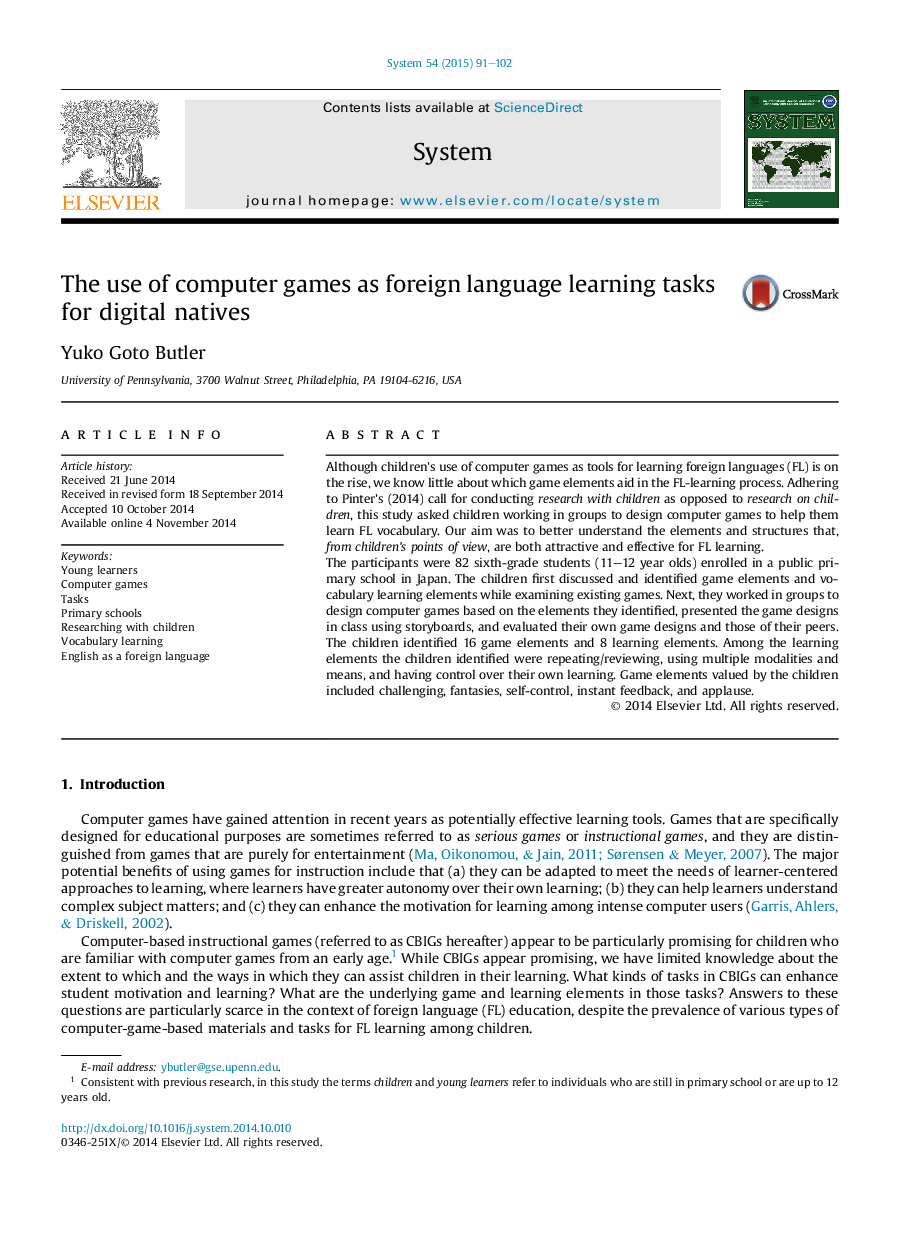| Article ID | Journal | Published Year | Pages | File Type |
|---|---|---|---|---|
| 372930 | System | 2015 | 12 Pages |
Although children's use of computer games as tools for learning foreign languages (FL) is on the rise, we know little about which game elements aid in the FL-learning process. Adhering to Pinter's (2014) call for conducting research with children as opposed to research on children, this study asked children working in groups to design computer games to help them learn FL vocabulary. Our aim was to better understand the elements and structures that, from children's points of view, are both attractive and effective for FL learning.The participants were 82 sixth-grade students (11–12 year olds) enrolled in a public primary school in Japan. The children first discussed and identified game elements and vocabulary learning elements while examining existing games. Next, they worked in groups to design computer games based on the elements they identified, presented the game designs in class using storyboards, and evaluated their own game designs and those of their peers. The children identified 16 game elements and 8 learning elements. Among the learning elements the children identified were repeating/reviewing, using multiple modalities and means, and having control over their own learning. Game elements valued by the children included challenging, fantasies, self-control, instant feedback, and applause.
